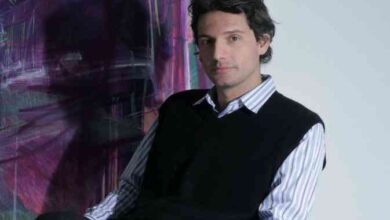Bobby Smalldridge: The Essex-Born Talent Redefining Britain’s Young Screen Icons

Bobby Smalldridge’s career is a case study in how early promise, disciplined training, and shrewd role choices can turn a child performer into a bankable young adult actor. Born on 5 November 2004 in Essex, England, Smalldridge began treading the boards before many of his peers had mastered long division, honing a craft that now spans acclaimed stage productions, BBC comedies, Netflix hits, and prestige films. Today, as audiences demand authentic Gen Z voices, his growing résumé offers a blueprint for longevity in an industry notorious for short-lived childhood stardom.
Who Is Bobby Smalldridge? A Young Actor with Timeless Talent
Bobby Smalldridge is one of Britain’s most promising young actors, known for his compelling performances across stage and screen. Born in Essex in 2004, he began acting at an early age and quickly captured attention with his natural charisma and emotional depth. From West End productions like Billy Elliot to acclaimed roles in TV series and films, Bobby’s journey showcases the power of discipline, talent, and passion. As the entertainment world shifts towards more authentic, grounded storytelling, Bobby Smalldridge continues to rise as a name audiences and critics alike can’t ignore.
Early Life and First Steps into Drama
Raised in a family that encouraged creativity, Bobby enrolled in Saturday classes at the Sylvia Young Theatre School—a London institution whose alumni list reads like a who’s-who of British entertainment. The structured environment gave him technical grounding in voice, movement, and character work and, crucially, a network of casting directors who recognised his natural timing and expressive range.
West End Beginnings: Billy Elliot and Beyond
A breakthrough came when he joined the West End cast of Billy Elliot – The Musical, delivering eight-show weeks that demanded stamina and maturity well beyond his years. The production’s rigorous dance and dialect requirements forged an early professionalism that still anchors his on-set habits. Reviewers highlighted his knack for balancing humour with pathos—traits that would later shape his on-screen persona.
Royal Court & Almeida: Cutting Teeth on Contemporary Classics
Rather than chase only commercial musicals, Smalldridge gravitated toward text-driven work. In the Royal Court’s satirical schoolroom drama God Bless the Child he portrayed Louis, a mischievous nine-year-old whose classroom revolt becomes chillingly plausible; critics praised his “whip-smart instincts” and “instinctive comic menace.” Soon after, he tackled ancient tragedy in Robert Icke’s Oresteia at the Almeida Theatre, shifting from classroom anarchy to Greek catharsis with ease.
First Forays onto Television
Television casting directors quickly noticed his stage credentials. A guest stint on Agatha Christie’s Marple: Greenshaw’s Folly introduced him to Sunday-night ITV audiences, while appearances in the long-running medical drama Casualty sharpened his ability to convey high-stakes emotion within tight shooting schedules. Quirky sitcoms followed—Cockroaches, Carters Get Rich and later Him—each allowing the actor to refine comedy timing without veering into caricature.
Breakthrough Film Roles
Smalldridge’s big-screen debut came with the feel-good indie Foster (2011); yet wider public awareness arrived when he starred opposite David Tennant and Rosamund Pike in the bittersweet family hit What We Did on Our Holiday (2014). Casting directors argue that his performance—equal parts innocence and razor-sharp observation—anchored the film’s emotional stakes. Two years later he appeared in James Gray’s adventure epic The Lost City of Z as the youthful incarnation of explorer Jack Fawcett (played as an adult by Tom Holland), proving he could hold his own in a sweeping period drama.
Netflix & Primetime: White Gold and Generation-Relevant Comedy
In 2017 the BBC comedy White Gold—later a Netflix favourite—offered Smalldridge his most visible TV platform yet. As Robbie Swan, the sharp-witted teenage son of Ed Westwick’s morally dubious salesman, he stole scenes with deadpan retorts that resonated with younger viewers. The role spanned two seasons, culminating in a 2019 Malta-set finale that drew social-media praise for his dry delivery and emotional nuance.
Acting Style: Naturalism Rooted in Theatre Technique
Observers often cite Smalldridge’s “listening skills”: he reacts on camera rather than merely recites, a habit born of live-performance muscle memory where audience energy can shift nightly. Directors relish his ability to shift temperature mid-scene—moving from comedic understatement to raw vulnerability without telegraphing intent. That versatility, combined with a well-calibrated Essex accent he can shade toward RP or Northern dialects, positions him for both mainstream and arthouse fare.
Education, Mentorship & Continuing Training
Although many child actors forego formal study, Smalldridge continues to work with vocal coaches between shoots and is reportedly completing a remote degree in English Literature. Mentors include Almeida artistic associates who still invite him to readings, ensuring he stays attuned to new writing. He credits workshops at the National Youth Theatre for sharpening his ensemble instincts and script-analysis skills.
Recent Projects and Future Prospects
Industry chatter links Smalldridge to an upcoming Sky drama about grassroots football, as well as a rumoured streaming miniseries chronicling the Battle of Orgreave—roles that would capitalise on his aptitude for working-class authenticity. Instagram teasers posted in early 2024 show him training with a dialect coach for what appears to be a Yorkshire-set project, hinting at further range. With British casting rediscovering regional voices, agents predict he will segue into grittier, auteur-driven cinema within the next five years.
Balancing Public Persona and Private Passions
Unlike many Gen Z performers, Smalldridge curates social media sparingly—occasional behind-the-scenes photos, guitar practice clips, or candid charity shout-outs. Friends note his love of 1980s vinyl, a hobby that dovetailed neatly with White Gold’s retro soundtrack. Off-set he supports drama-in-education programmes in Essex schools, pitching acting as a confidence-building tool rather than a fame pipeline.
Cultural Impact and Representation
Smalldridge’s ascent coincides with a broader shift in British media toward inclusive, class-conscious storytelling. By portraying layered working-class youth on prestigious stages and primetime screens, he challenges stereotypes that once flattened such characters into comic relief or tragedy fodder. Emerging actors cite his trajectory—West End to Royal Court to Netflix—as proof that you needn’t choose between artistic credibility and mainstream reach.
Conclusion: A Talent Built for the Long Game
Still only in his early twenties, Bobby Smalldridge already boasts a fifteen-year portfolio bridging classical theatre, indie cinema, and binge-worthy television. Each chapter of his career demonstrates calculated growth: dance-heavy musicals forged discipline, experimental plays drilled textual sensitivity, while screen work refined the subtlety of his facial economy. That layered foundation, combined with an instinct for culturally resonant roles, suggests his best performances lie ahead. Industry insiders often talk about the “next Dev Patel” or “next Asa Butterfield”; Bobby Smalldridge is making a compelling argument for becoming the first, definitive Bobby Smalldridge—an actor whose versatility mirrors the evolving stories Britain wants to tell.



